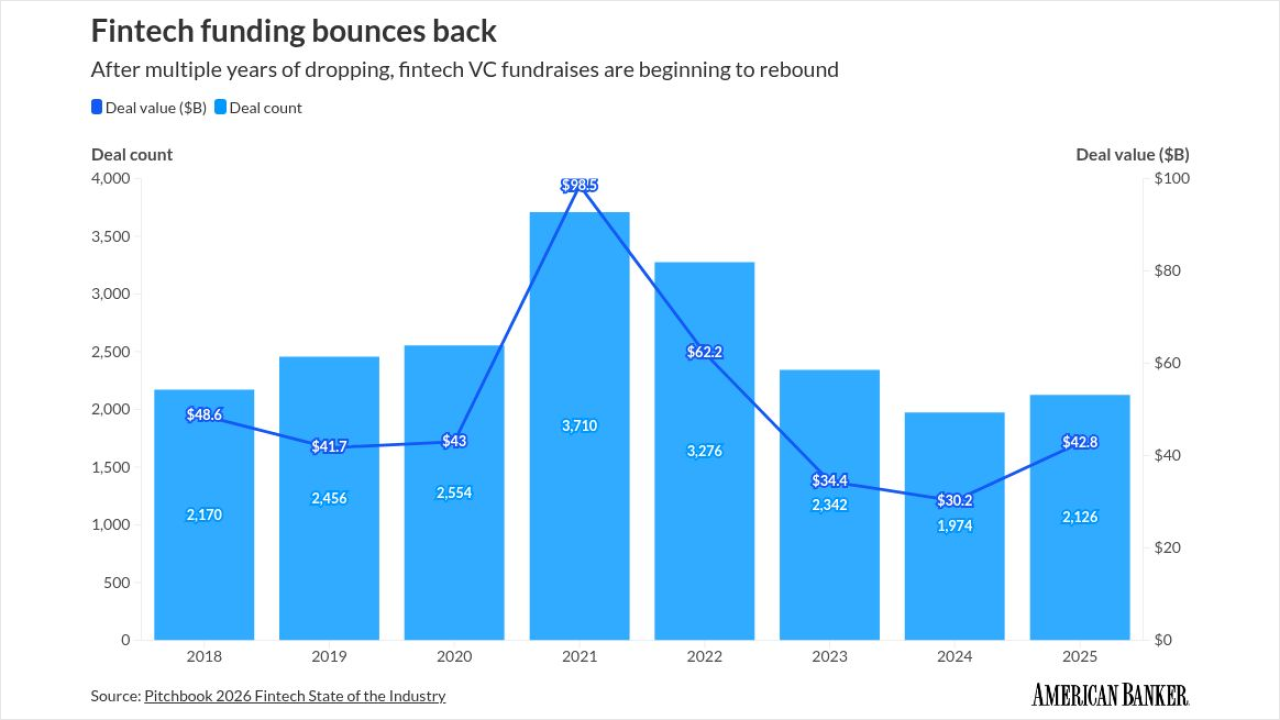CoreStates Bank in Philadelphia is trying a new approach to the merchant side of the credit card business, which most major banks exited in recent years.
In what could be a sign of an industrywide rethinking, CoreState has reasserted its commitment to processing card payments for merchants by looking at it as a cash management service. It has called on a veteran wholesale banker to make the strategy work.
"The merchant business had historically been a stand-alone operation doing its own thing," said William F. Githens, senior vice president at the lead bank of CoreStates Financial Corp., where he heads the wholesale transaction services group.
"We made the decision to capitalize on our wholesale distribution network and integrate merchant processing into a family of cash management offerings, selling it as another collections product," he added.
Mr. Githens, 46, has been with the $23.5 billion-asset banking company for 25 years. He managed the integration of merchant processing into the wholesale banking area last January.
In previous roles. Mr. Githens oversaw the strategic planning and economics functions from 1983 to 1986, when he reported to CoreStates' chairman. He was in charge of cash management and international trade services from 1986 to 1990, then spent about 2 1/2 years heading the regulated industries group, providing specialized credit and noncredit services to the education, utility, and not-for-profit sectors.
That corporate-service experience was seen as transferable to his current merchant processing interests.
When supermarkets, drug stores, and other retailing customers approach CoreStates for lockbox, wire transfer, balance reporting, and other more traditional cash management products, the bank also tries to sell them on card-acceptance services. CoreStates can then tailor a program to suit an individual merchant.
The bank offers several point of sale equipment and leasing options. If necessary, the bank trains the merchant's employees.
CoreStates also offers the service as a wholesale product to about 100 agent banks. These banks, in turn, offer merchant processing services to their customers.
Mr. Githens said that CoreStates processes 40 million transactions a year, both debit and credit card payments. The bank has built a sizable, multi-state network of card-accepting merchants, and some transaction growth in the Middle Atlantic region is being fueled by the MAC automated teller machine and point of sale debit network, which is co-owned by CoreStates.
In the merchant processing business, technically known as the acquiring business (as opposed to the card-issuing business), banks generate income by charging the merchant a discount on each transaction. If the discount rate were 2%. the bank would keep $2 on a $100 sale, and the merchant would net $98.
Processors also can earn money from equipment sales and leases.
In recent years, banks have run up against nonbank processors that have lured away their merchant customers with lower per-transaction discounts.
Most banks, meanwhile, were able to make more and easier money on the card-issuing side. Profit margins on the cardholder side have been as much as 15 times greater than on the merchant side, according to an American Bankers Association spokesman.
Accordingly, bankers in the 1980s poured resources into card-marketing and customer service and became less and less interested in merchant-acquiring. Some institutions sold their merchant businesses when they needed to raise capital.
CoreStates executives believe that, in coming years. merchants will demand more than basic processing services and that profits will be available from meeting the demand for debit cards. CoreStates is ready for both trends.
"We've found that customers are looking for more than just a cut-rate transaction cost," Mr. Githens said. "They are looking for us to be there at their service. beyond simply processing the sale."
"The profits on the merchant side of the business are slim, and only a very few players dedicated to streamlining their business and maximizing operational efficiencies are able to make any money," said Michael Auriemma, a managing director at Auriemma consulting in Westbury, N.Y.
Mr. Auriemma added that competition from nonbank processors like Nabanco of Fort Lauderdale, Fla.. forced traditional servicers to rethink their approaches. Nonbanks have been known to "keep cutting their prices until a merchant can't say |no,'" he said.
In coming years, debit cards may change everything.
William Westervelt, a consultant at First Annapolis Consulting in Annapolis, Md., said banks that sold their merchant processing businesses are taking a second look. The business seems perfectly logical for CoreStates, given its strengths in both corporate cash management and retail automation.
"There is an emerging trend among the superregionals to refocus and to look at merchant processing differently than they might have five years ago." he said. "Debit is becoming increasingly common at supermarkets and gas stations. Managing debit sales has become a logical cash management function."
Conventional wisdom says that, although the per-transaction profit margins are smaller with debit cards, the anticipated volumes make debit processing attractive, In CoreStates' part of the country, increasing numbers of supermarkets and gas stations are accepting debit cards, and volumes are rising.
Mr. Githens said that CoreStates' strategy is to offer top-flight service and one-stop shopping for these high-traffic businesses.
"It's becoming a business of differentiation," he said. "We're offering added value to our customers."





